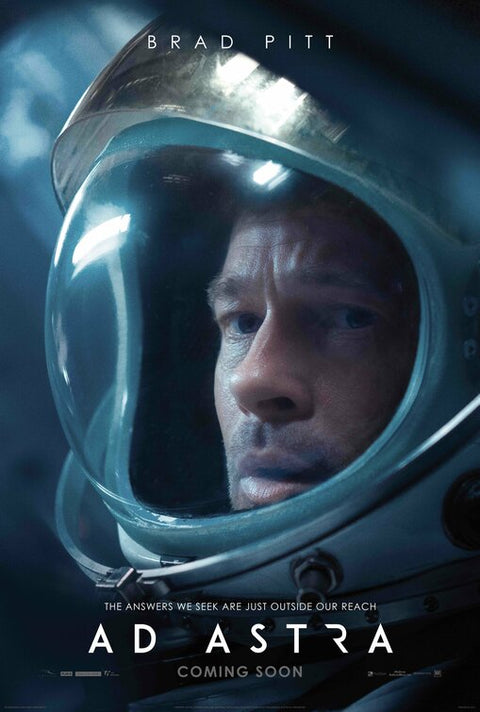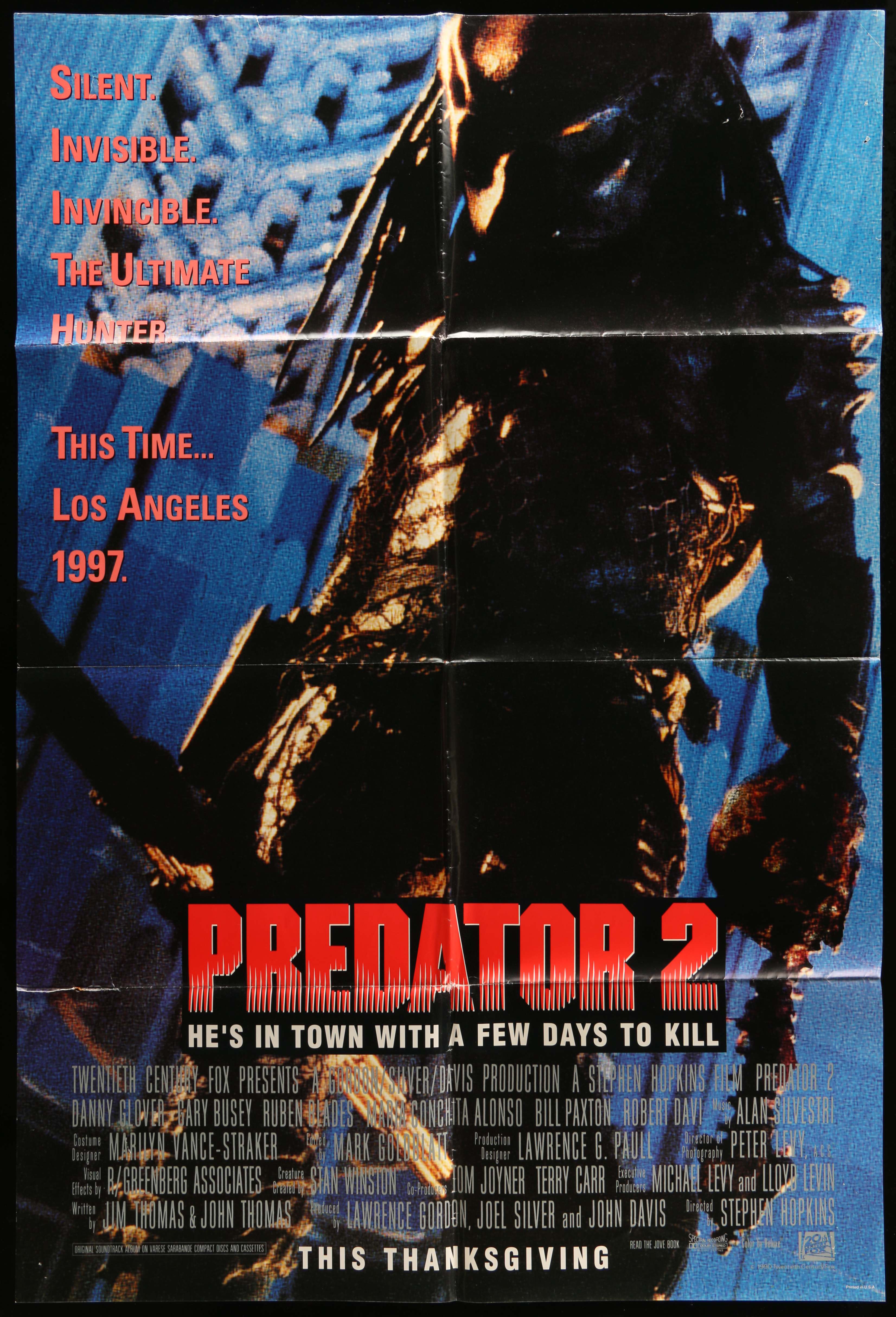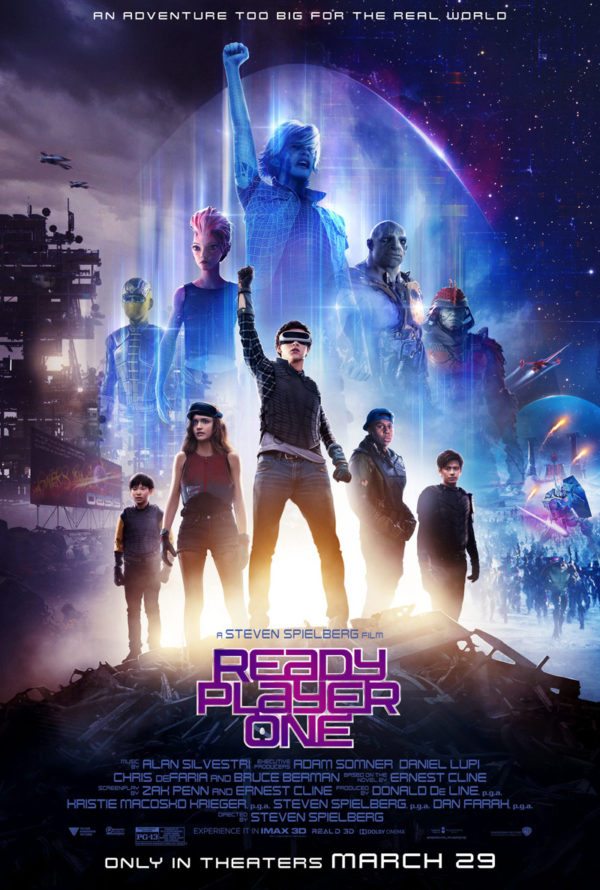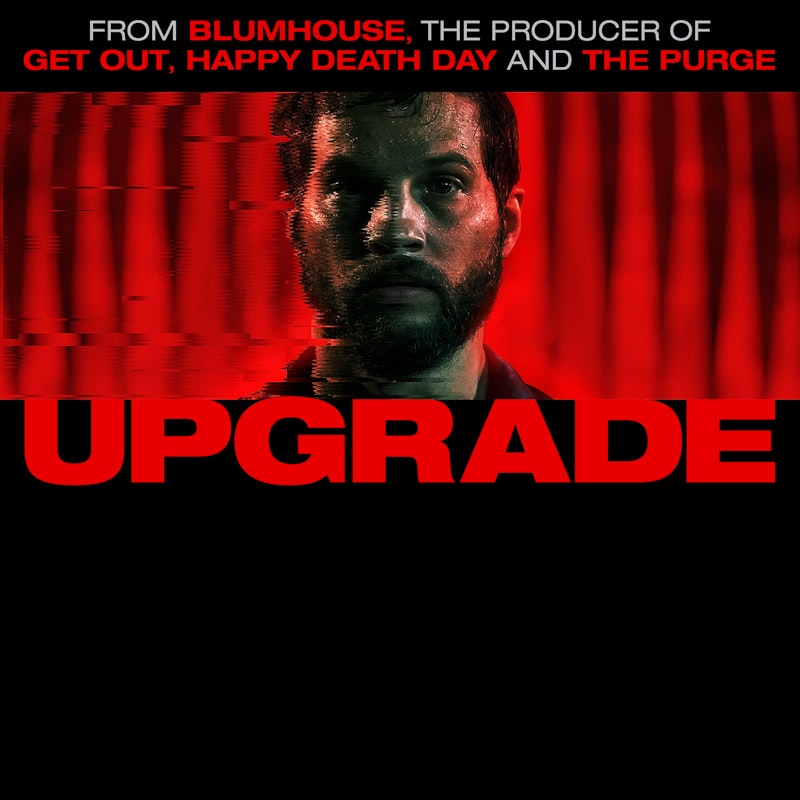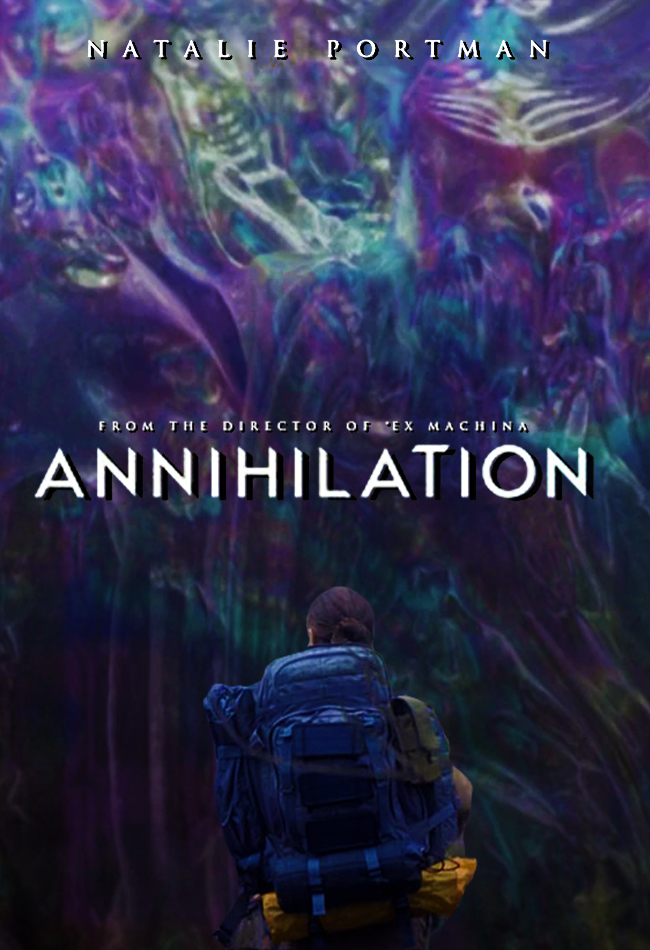After the relative commercial failure of
Predator 2, a decent movie but a letdown from the classic original, the film franchise went dormant for some time. To get Predator (and Alien) movie stories, one had to get the comic books released through independent publishers Dark Horse. Though both the Predator and Alien movie franchises cooled off/died off through the 1990s, Dark Horse continued to publish very popular stories, including the mini-series
Aliens vs. Predator in 1990. This was the premise that filmmakers decided to use well over a decade later, when they decided to resurrect not just one but both film series:
AVP: Alien vs. Predator (2004)
Director: Paul W.S. Anderson
I watched this movie for the first time not long ago, and did
a longer review of it here. For this reason, I'll keep this summary short.
AVP was a decent romp, and more entertaining that I had actually expected. I didn't bother with it when it came out because the concept just seemed too contrived for a movie, and the reviews were generally quite poor. Over the succeeding year, though, I had more than one friend tell me that it wasn't all that bad. So last year, I gave it a shot, and found my friends to be correct:
AVP is hardly a great movie, but it isn't bad, either. The acting is shaky here and there, and the writing and dialogue are average, at best. But the underlying premise is intriguing enough, and the setting of an underground, labyrinthine gauntlet is fun enough to hold one's attention. For one viewing, anyway. I'll never feel the need to go back and watch this movie again, but I didn't feel like I had wasted my time seeing it the once.
Aliens vs. Predator: Requiem (2007)
Director: The Brothers Strause (Colin and Greg)
Despite being told by everyone I know whose seen this movie that it's terrible, the compulsive part of me took over and demanded that I watch this entry into the Predator series, for the sake of this post and obsessive completionism.
It was pretty much just as awful as my friends and the critics had told me.
The starting premise of the film actually isn't terrible. As teased at the end of
AVP, on a "predator" spacecraft outside of earth's orbit, a xenomorph face-hugger gets lose, then attacks and implants an egg inside of a "Predator" alien, creating a "predator xenomorph." This frightening hybrid kills the few other predators on the ship, gathers a number of other face-hugger aliens, takes an escape pod and heads for earth. It soon crashes in a sleepy little Colorado town. Meanwhile, the news of the death of the several predators on the original ship reaches their home planet, where another intimidating predator gathers his weapons and head towards earth to find and kill the creature that laid waste to its comrades.
It's not a terrible setup. The problem is that the positives for the movie end there. Once the action gets to earth, almost nothing about the movie holds together or is enjoyable to watch. Very quickly, we see just how far the writers are willing to go to disturb us, as a father and his 10-year-old son are attacked by face-huggers and we see new aliens punch their way out of these victims' chest. Later in the movie, we see the same things happen to a bunch of pregnant women in a maternity ward. I understand that there has always been a horror element to the Alien movies, but these scenes were grotesque to the point of being completely revolting, not unlike things I've seen in the disposable
Species films.
 |
This is about as bright and clear as any of the action scenes
get in this movie. Trying to determine just what the hell was
going on in these sequences was a true exercise in frustration. |
Then there was the pacing and the human stories, which seemed as if they had no idea whatsoever where to go. The movie hints and two or three stories about some of the human characters, but never develops any of them remotely well enough for us to care about them. The one that gets furthest along is a high school teenage drama between a couple of 17-year-olds, but the girl gets brutally murdered by an Alien about two-thirds into the movie. One of the characters is a soldier returning home (we never learn from where), and the actress actually seemed believably tough, but we never get to see her actually do much of anything. And then there's the ending of the movie, which I'll get to shortly, that makes the utter lack of character and story development all the more baffling.
But by far the most frustrating thing about this movie is the visuals. Bluntly, the action scenes were among the very worst I've ever seen in a decently budgeted movie. The budget is reported as $40 million. For comparison, James Cameron's high-octane action/sci-fi classic
Aliens worked with a budget which, adjusted for inflation, is still less than the budget of
AVP: Requiem. The fight choreography may have been really good, but no viewer would ever know because the framing, editing and lighting are so awful. During the movie's many fight scenes between xenomorph, predator, predator xenomorph, and humans, I quite honestly could not tell what the hell was going on most of the time (and I was watching it in my completely dark living room, on a 48" HD TV). It was impossible to get any sense of perspective or movement, making the fight scenes increasingly infuriating as the movie went along. It's generally not good when a movie titled "
Aliens vs. Predator" doesn't allow the viewers to clearly see the aliens versus the predator.
And then there was the final insult that is the movie's end. By the middle of the movie, the local sheriff has had the good sense to call in the National Guard. The people who show up, though, are obviously some shady branch of the U.S. military. Instead of leading the surviving townspeople to a safe zone to be rescued, they direct them into the center of town and literally drop a nuke on the entire place. I suppose we're meant to assume that this was to contain the alien threat? OK, but then why does that same branch allow the four survivors who make it out to live, covering them with blankets and caring for them? The nuke renders the entire predator versus alien fight a completely moot point, and allowing survivors renders the nuke pointless. Pure idiocy, in terms of writing. At least the nuking serves as a fitting, though accidental, analogy for what this film did to the entire "Aliens vs. Predator" film series.
The funny thing is that, as bad as this movie was, it made over $120 million worldwide. I am surprised but very glad they didn't bother with another "AVP" film, if this was the best followup they could muster. Instead, they mercifully ditched the crossover idea, went back to focusing solely on the predator aliens, and dug out a script and idea that had been in their bins for 15 years:
Predators (2010)
Director: Nimrod Antal
A fellow
Predator devotee and close friend and I saw this one in the theater back in 2010. We were not pleased. Still, it had been a good eight years since seeing it, I wanted a fresh viewing for this post, and I was guessing that following
AVP: Requiem would only reflect well on this one.
Ever-more self-indulgent film writer and director Robert Rodriguez had apparently written a script for a sequel to the original two Predator movies back in 1994, while he was still a rising underdog star in the independent film world. After the critical lambasting that
AVP: Requiem received (though it was rather profitable), the studio decided to get somewhat back to basics, dig up Rodriguez's script, and allow him to produce a reworking of his vision.
Now that I've rewatched it very shortly after watching
AVP: Requiem, it's pretty clear that the movie's greatest asset was following that absolutely horrendous entry into the series.
Predators is not a particularly good film, but it is certainly far better than
Requiem.
This movies starts with a mercenary, played by Adrian Brody, falling out of the sky. His automated parachute opens, he lands, and soon finds other strangers who've had the same thing happen to them. These seven people - each one a person steeped in violence in some way - have been shanghaied from Earth and brought to a planet used as a hunting game preserve for the predator aliens. The humans, who start getting picked off one at a time, must figure out how to survive and possibly get off the planet.
Like every other Predator movie, even the wretched
Requiem, the premise is decent. Changing the setting to another planet is novel, and it offered a chance to include some fun, science-fiction elements regarding life on other planets. The problem is that the writers never took the opportunity to really explore these aspects. It was just one of several missed opportunities in this movie. Another was the chance to show or at least dig a bit deeper into a few of the characters' backstories. The movie never does, so it's difficult to care much about any of them. This doesn't even take into account how certain questions can't be answered, such as how the predator aliens know these characters' stories and that they're all such accomplished killers. This is an especially difficult question to answer in the cases of the two psychopath murderers played by Walton Goggins and Topher Grace.
 |
The basic idea behind the diverse cast was a decent one, but
there were a few illogical inclusions, such as the characters
played by Topher Grace and Walton Goggins. |
Speaking of the characters, I will say that the casting of this movie was mostly strong, with the glaring exception of the lead - Adrian Brody. Brody is obviously an excellent actor, but he simply doesn't come anywhere close to looking the part of an action movie hero. Given just how much
Predators tries to echo the original movie it was ill-advised to fill in the role played by Arnold Schwarzenegger with a thinly-built, slightly goofy-looking Englishman who put on a bit of muscle and a gruff, tough voice. That aside, the rest of the crew is great. Unfortunately, the script never rose above "OK," and was fairly humorless.
The most frustrating thing about
Predators, though, is how it simply couldn't help itself in deferring (i.e. "out of ideas") to the original
Predator movie. I'm always fine with a sequel giving one or two fun little tips of the cap to a classic original movie.
Predators, though, goes way over the line between "homage" and "unoriginal." I counted no fewer than
thirteen separate things that this movie copied straight from John McTiernan's classic film. These included props like Blaine's gatling gun to character designs like the Sierra Leonean being a facsimile of Billy to direct dialogue like, "Over here. Turn around," "What the fuck are you?" and "I'm here! Kill me!!" And there are plenty of others. When you add all of this to the familiar setting of the jungle and the general premise of a group of soldiers, then you basically get a movie that clearly felt that it couldn't be better than the original, so it just changed a few elements but told the same story with way too many of the same details.
I must say, though, that the movie was the best-looking one since
Predator 2. While I do feel that it great too dark too soon (the second half of the movie all takes place at night), the cinematographers did well all of the things that
Requiem did poorly. I was actually amaze to discover that the two movies had exactly the same budget. When you factor in that they were made only three years apart, it's a testament to what a difference a skilled visual crew can make for a movie.
The Predator film franchise Final Rankings
Now that I've seen all six films in the franchise, here are my final rankings, along with a very brief summary thought on each:
- Predator (1987): A masterpiece of sci-fi action that will never get old.
- Predator 2 (1990): A major dropoff from the 1st, but a decent flick.
- The Predator (2018): A messy, mediocre movie somewhat redeemed by fun dialogue, a solid ensemble cast, and some decent action.
- Predators (2010): Another OK effort that suffers from a weak third act and riding the original movie's coattails way too hard.
- AVP: Aliens vs. Predator (2004): Not without its fun elements, but still an inferior movie.
- Aliens vs. Predator: Requiem (2007): Two workable ideas turned into cinematic garbage that only the most obsessive fans of the franchise could remotely enjoy.

